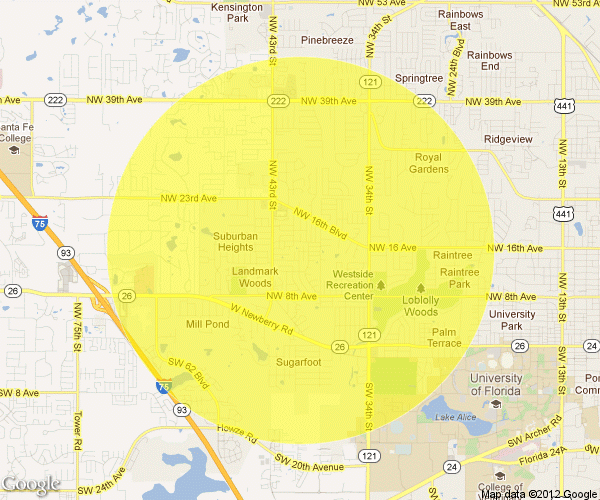Dear Neighbors,
Tue, Apr 24, 2012
An open letter to my neighbors about my decision to keep thousands of stinging insects in your vicinity.
Dear Neighbors,
I’m not entering into beekeeping casually. I’m spending a lot of time and effort to do this thing right. A big part of my success will be achieved by not upsetting you and your family. I’m sincere in my desire to be a good neighbor and a good beekeeper. I want my bees to contribute to the neighborhood, and not become a bother. So I’ll do everything I can to manage my bees in a way that prevents them from becoming a problem. That being said bees and their colonies are living, breathing organisms, so there is a chance that in spite of my best efforts the bees I keep could encroach on your space. I apologize in advance for any bad encounters you may have with my bees. I would ask though, that in order for me to be successful in keeping you happy I’ll need your cooperation. Please let me know if my bees become a nuisance and I’ll do whatever I can to mitigate any negative impact they have on your happiness.
Below you’ll find a list of actions I’ve taken or plan to take to stay ahead of any problems. Additionally, I’m going to list a number of resources that I hope you’ll read. These resources have information about bees that may help assuage some of your fears or give you ideas about what you might see being within close proximity to managed bee hives. Also, you may find information that helps you enjoy my bees too. They’re fascinating creatures, and I hope you’ll enjoy having them in the neighborhood.
Thanks for reading this, and again- please let me know if my bees are causing you harm.
About bees in our neighborhood
- We already have honeybees in our neighborhood- I don’t know if they’re feral or managed, but either way they’re here. My loquat tree brings them in by the hundreds.
- We also have a number of bumble bees and carpenter bees
- I’ll be keeping European Honeybees, primarily of the Italian type
- According to UF’s HoneyBee Research & Extension Lab, Africanized HoneyBees haven’t moved as far north as Gainesville (though I do worry a bit after this warm winter)
- Honey bees will regularly forage up to two miles from their hive (see the map below)

Steps I’ll be taking to make my beekeeping a good experience for you
- Placing tall barriers around my hives to force the bees up and over your living space
- Providing automatic watering to keep my bees out of your pool
- Feeding my bees when nectar flows aren’t present
- Actively managing my hive populations to preempt swarming
- Maintaining open communication channels with you to coordinate hive work days and no-fly days (I found this was never really necessary)
- Sharing the bounties of my hives in the form of honey, mead (if you’re interested), candles, soap, etc when I have such things
- Offering guided bee tours if you’re game
Things you can do to be a good bee neighbor
- Let me know if my bees are being an intolerable nuisance
- Minimize sweet stuff outside that might attract the bees
- If you’re having a picnic or BBQ let me know in advance and I’ll keep the bees from flying that day (this wasn’t necessary)
- Minimize standing water that might attract bees (or grow mosquitoes)
- Minimize your use of herbicides and pesticides
Dealing with bee encounters
- Honey bees aren’t aggressive unless they feel threatened - don’t swat, wave your arms, or scream
- If a bee lands on you, give it a moment - it’ll probably inspect you and then move along
- If you do get stung remove the sting as quickly as possible by scraping or pinching it off your skin.
- Stings give off pheromones that alert other bees to danger, so if you’re stung and other bees are around go inside for awhile until the pheromone dissipates.
Swarms
- Swarms are a honeybee colony’s means of reproduction - one colony becomes two
- Prior to swarming bees tend to gorge themselves on honey - this and a lack of brood in the swarm helps make the swarm docile
- Swarms tend to initially congregate near the original hive for a few hours or days while the scout bees locate a suitable new home
- If you see a swarm, let me know and I’ll get it removed
- Even though most swarms are docile, it’s best that they are collected by someone with experience handling bees
- Swarms can be dangerous in Africanized HoneyBee (AHB) areas as AHBs are more aggressive than European Honeybees
- My understanding is that I-4 is roughly the demarcation of the northernmost AHBs in Florida
Some helpful bee resources
I hope you will take the time to scan through some of these documents and web pages. They contain information about bees:
- What is NOT a honey bee - FL Dept. of Ag & Consumer Svc.
- Backyard Beekeeping
- Bee a Good Neighbor from Cornell University - include info on keeping bees out of your lawn
- Being a Good Neighbor from Barnstable Beekeepers - lots of info about suburban beekeeping
- Bee Sting Prevention from the Mayo Clinic - good tips to prevent bee encounters
There are tons of bee resources out there, so Google to your heart’s content
